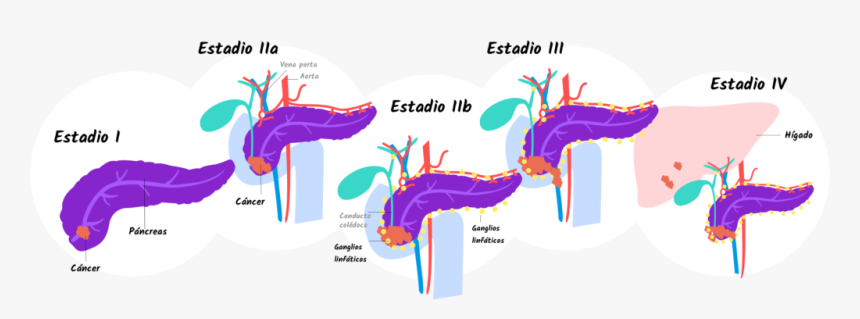- Home
- About Us
- Doctors
- Specialties
- Bariatric Surgery
- Bone Marrow Transplant
- Cancer
- Cardiology
- Cardiovascular And Thoracic Surgery
- Critical Care Medicine
- Dental Surgery
- Dermatology & Cosmetology
- Diabetic Foot Care
- Ear, Nose & Throat
- Endocrinology
- Fetal Medicines
- Gastroenterology
- General Medicine
- General Surgery
- HPB & Gastrointestinal Surgery
- Interventional Radiology
- IVF
- Kidney Transplant
- Laparoscopic Surgery
- Liver Transplant
- Medical And Hemato Oncology
- Neurology
- Neuro & Spine Surgery
- Nephrology And Dialysis
- Nuclear Medicine
- Orthopedic
- Ophthalmology
- Obstetrics And Gynecology
- Pathology Laboratory
- Pediatric
- Peripheral Vascular And Endovascular Surgery
- Physiotherapy and Rehabilitation
- Plastic Reconstruction
- Plastic & Cosmetic Surgery
- Pulmonary Medicine
- Radiation Oncology
- Radiology
- Robotic Surgery
- Surgical Oncology
- Urology
- Facilities
- Patient Area
- Testimonials
- Media
- Contact Us
Pancreatic Cancer
Pancreatic Triumph: Empowering Lives, Defeating Cancer
At Universal Hospital, we are committed to standing with you in the face of pancreatic cancer, offering expertise, compassion, and hope for a brighter future. Your health and well-being are our top priorities.ancreatic cancer is a formidable disease that affects the pancreas, an organ crucial for digestion and blood sugar regulation.
What is Pancreatic Cancer?
Pancreatic cancer is a type of cancer that originates in the pancreas, an organ located behind the stomach. The pancreas plays a crucial role in digestion and hormone regulation. Pancreatic cancer is often diagnosed at an advanced stage, and it is known for its aggressive nature and challenging treatment.
Risk Factors:
- Age: Pancreatic cancer is more common in older adults, with the highest incidence in those over 65.
- Tobacco Use: Cigarette smoking is a significant risk factor.
- Family History: Having a first-degree relative with pancreatic cancer increases the risk.
- Inherited Genetic Syndromes: Certain genetic conditions, such as hereditary pancreatitis or Lynch syndrome.
- Chronic Pancreatitis: Long-term inflammation of the pancreas is associated with an increased risk.
- Diabetes: Individuals with long-standing diabetes have a higher risk.
- Obesity: Being overweight or obese is a risk factor.

Symptoms:
- Abdominal Pain: Discomfort or pain in the upper abdomen or back.
- Unexplained Weight Loss: Significant weight loss without an apparent cause.
- Jaundice: Yellowing of the skin and eyes.
- Loss of Appetite: Decreased interest in food.
- Digestive Issues: Changes in bowel habits, nausea, and vomiting.

Staging:
Pancreatic cancer is staged based on the extent of the disease, ranging from Stage I (localized) to Stage IV (advanced and metastatic).
- Stage 0: Confined to the top layers of pancreatic ducts.
- Stage I: Limited to the pancreas.
- Stage II: Involves nearby tissues or lymph nodes.
- Stage III: Extends to major blood vessels.
- Stage IV: Spreads to distant organs or fluid surrounding them.
Diagnosis:
- Imaging Tests: CT scans, MRI, or ultrasound to visualize the pancreas and surrounding structures.
- Endoscopic Ultrasound (EUS): A thin, flexible tube with an ultrasound probe is inserted into the digestive tract to obtain detailed images.
- Biopsy: Removal of a tissue sample for laboratory examination to confirm cancer.
Treatment:
- Surgery: Removal of the tumor or the entire pancreas, depending on the stage and location.
- Chemotherapy: Systemic drugs to kill or inhibit cancer cells.
- Radiation Therapy: High-dose X-rays or other forms of radiation to destroy cancer cells.
- Targeted Therapy: Drugs that specifically target molecules involved in cancer growth.
Prevention:
While some risk factors cannot be modified, certain lifestyle changes may help reduce the risk of pancreatic cancer:
- Quit Smoking: Tobacco cessation is crucial for reducing the risk.
- Maintain a Healthy Weight: Adopting a healthy diet and lifestyle can contribute to overall well-being.
Prognosis:
Prognosis in pancreatic cancer is generally poor, as it is often diagnosed at an advanced stage. Treatment outcomes depend on factors such as the stage at diagnosis, response to treatment, and the individual’s overall health.
Screening:
Routine screening for pancreatic cancer in the general population is not currently recommended due to the lack of highly effective screening methods. Individuals with specific risk factors or a family history may undergo more intensive surveillance.
Why Choose Universal Hospital for Pancreatic Cancer Care:
- Expert Pancreatic Oncology Team: Our Pancreatic Cancer Care Center is staffed by a team of experienced oncologists, surgeons, and supportive care professionals with specialized knowledge in the diagnosis and treatment of pancreatic cancer.
- Cutting-Edge Treatments: Universal Hospital offers state-of-the-art treatments, including surgery, chemotherapy, radiation therapy, targeted therapy, immunotherapy, and participation in clinical trials, ensuring patients have access to the latest advancements in pancreatic cancer care.
- Holistic Patient Care: We prioritize individualized care plans that consider not only the medical aspects of pancreatic cancer but also the emotional and practical needs of our patients, providing support and resources beyond the treatment room.





